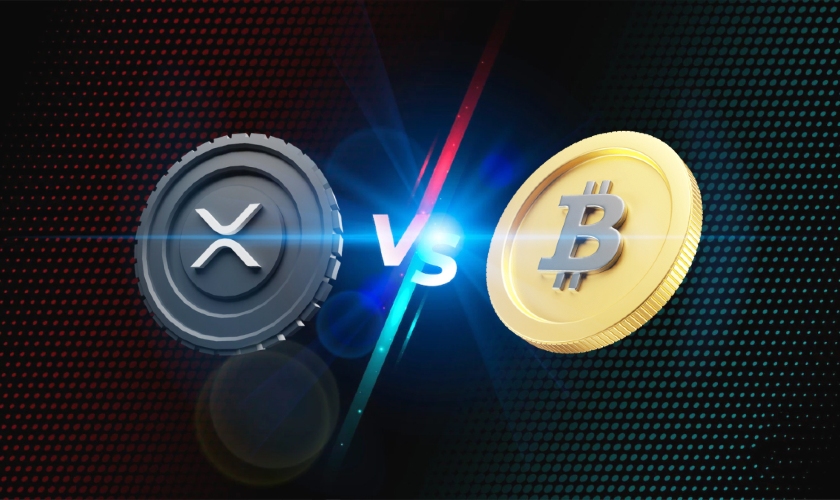Ex-Ripple Executive Matt Hamilton Explains Why XRP Is Superior to Bitcoin
In a recent interview, Matt Hamilton, the former Director of Developer Relations at RippleX, shared his insights on why he believes XRP is superior to Bitcoin (BTC). Speaking on the Mr. M Podcast, Hamilton highlighted key differences between the two leading cryptocurrencies, focusing on scalability, transaction costs, and decentralization.
XRP Offers Greater Scalability
Hamilton emphasized that XRP is designed to handle a significantly larger number of transactions compared to Bitcoin. He pointed out that Bitcoin can process only 7 to 10 transactions per second, which he feels is insufficient for global financial usage. This limitation, according to Hamilton, would only allow the world’s population to make a couple of transactions each over their lifetime if Bitcoin were to be the primary global payment system.
To tackle Bitcoin’s scalability issues, the network often relies on Layer-2 solutions and custodial systems. However, Hamilton argued that these add-ons compromise Bitcoin’s decentralized nature, one of the core principles on which it was built.
On the other hand, the XRP Ledger (XRPL) was specifically designed for high transaction volumes. Hamilton noted that the XRPL’s transaction capacity increased from 1,500 to 3,400 transactions per second (TPS) in 2022, showcasing its ability to handle global-scale payments without needing external layers or systems.
XRP Transactions Are More Affordable
Another key advantage, according to Hamilton, is the cost of transactions. Bitcoin’s transaction fees tend to be high and could rise further as mining rewards, which currently subsidize the network, decrease over time. This could make Bitcoin too expensive for everyday users, limiting its adoption to wealthy individuals or financial institutions.
In contrast, XRP’s transaction fees are minimal, averaging just $0.0002 per transaction. This low-cost structure makes XRP a more attractive option for everyday use, enabling the possibility of mass adoption for daily financial activities.
Addressing XRP Freezing Concerns
During the podcast, the host raised concerns about an incident where a large amount of XRP was allegedly frozen after a sale. Hamilton clarified that XRP itself cannot be frozen on the XRP Ledger. The incident involved Ripple co-founder Jed McCaleb, and the funds were frozen by an exchange, not by the XRPL.
He emphasized that had McCaleb’s XRP remained on the XRPL, it would not have been frozen. Hamilton used this example to stress the security and autonomy of the XRP ecosystem compared to other networks, including Bitcoin, where assets have occasionally been frozen by authorities.
A More Efficient Solution for Global Payments
Hamilton’s statements underline his belief that XRP is better suited for global financial transactions than Bitcoin. With its high transaction speed and low fees, XRP is positioned as a more practical solution for both large-scale and everyday use.
In contrast, Bitcoin’s limited scalability and rising transaction costs could restrict its future application. Hamilton suggests that Bitcoin may eventually be used primarily by wealthy investors and institutions, rather than as a widely adopted payment system.
Conclusion
Matt Hamilton’s perspective on XRP highlights the strengths of the digital asset, especially in terms of scalability and cost-effectiveness. While Bitcoin remains the world’s largest cryptocurrency by market cap, its limitations could hinder its broad application as a global payment method.
As XRP continues to gain traction in the crypto space, its potential to revolutionize cross-border payments and financial systems remains a topic of interest.
🚨Also if you want to trade XRP or any other crypto asset and earn FREE XRP for doing it sign up and trade using this link: https://margex.com/en/levi

Disclaimer: This article is for informational purposes only and does not constitute financial advice. The views expressed are those of the author and not necessarily those of CryptoInsider. Readers are encouraged to conduct their own research before making any financial decisions.





